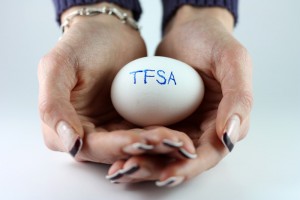With the Canadian tax season in full swing and many individuals rushing to make contributions to their RRSP’s and Tax-Free Savings Accounts (TFSA’s), a moment to consider the nature of your investment activity is always important.
In recent correspondence with the Canada Revenue Agency (CRA) it is becoming apparent that the CRA is focusing on high value TFSA’s and conducting audits on these accounts as large amounts of monies are being withdrawn tax free. While it is not clear the dollar threshold that will spark the CRA’s interest, it would be safe to assume that accounts in the six digits and upwards will be subject to scrutiny.
The reasoning for this recent development is the use of TFSA’s by individuals for day-trading activities which are resulting in large capital gains that are then being withdrawn tax free. The implication is CRA’s position that the activity of day-trading is a business and as such any income earned in a TFSA should be taxable. While not everyone is a day-trader the concern to the average investor is that you could happen to own a very well-performing portfolio that has netted you some decent returns and is now placing you under the attention of the CRA radar.
As there is no specific wording in the Income Tax Act regarding when your investment income becomes business income the tax courts of Canada have established guidelines that the CRA must consider when looking to classify investment and trading activity as a business. These are:
- The intent upon which the investments were purchased (intention to buy and hold to earn income, or to trade for a profit);
- The number of transactions in the account;
- The length of time the investments were held;
- The overall nature of the investments;
- The time spent by the individual investor with their investments (hobby or full-time);
- The extent monies were borrowed; and
- The individual’s expertise or knowledge in the investments and trading activity.
While no one factor will be sufficient evidence or proof that investing or trading activity is in the nature of business, the courts and the CRA will look at the whole picture in making a final determination with intent being the key position. When it is not clear as to the intent, as in recent cases (specifically Ontario Limited and Empire Paving Limited), the Tax Courts have decided to rule in favor of the taxpayer, as there are traits that could suggest either treatment.
However, a word of caution. While there has been favorable treatment where evidence is not clear as to the intent of the investment activity, individual taxpayers should not flirt with danger as rulings can quite easily swing the other way with punitive results. Consult with a professional tax accountant to ensure that your holdings are being reported correctly so as to avoid any nasty surprises.









